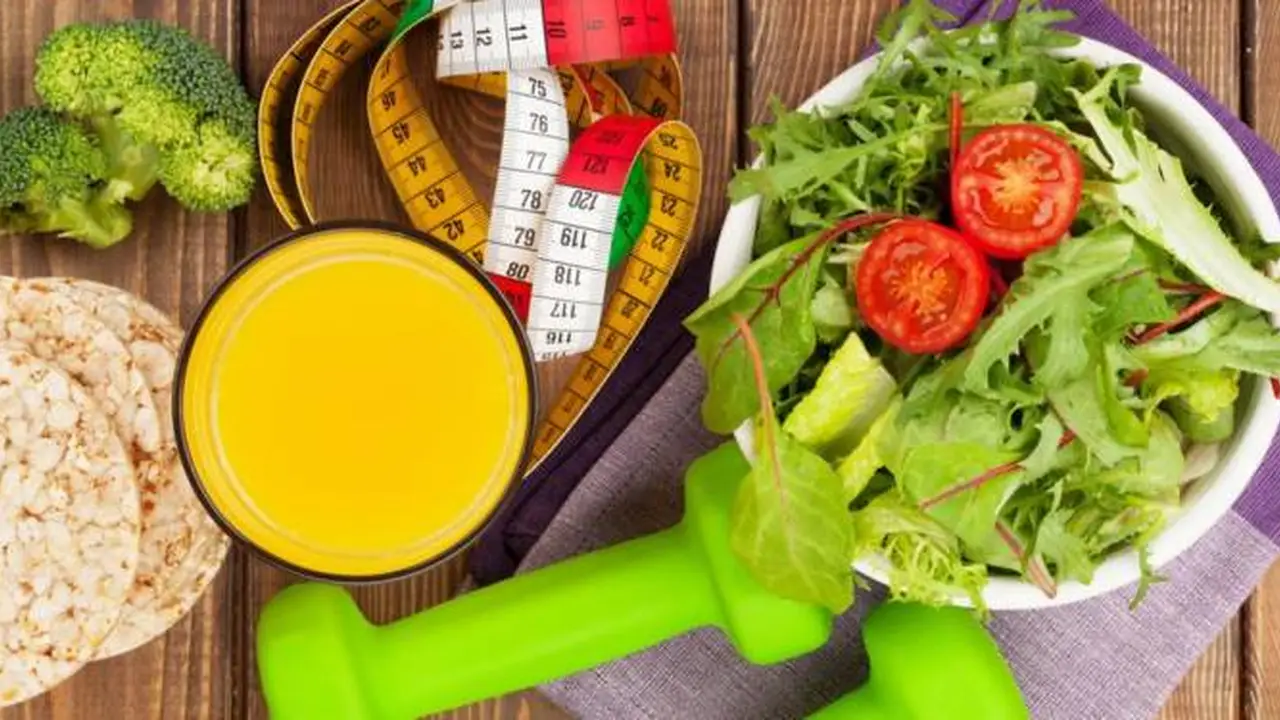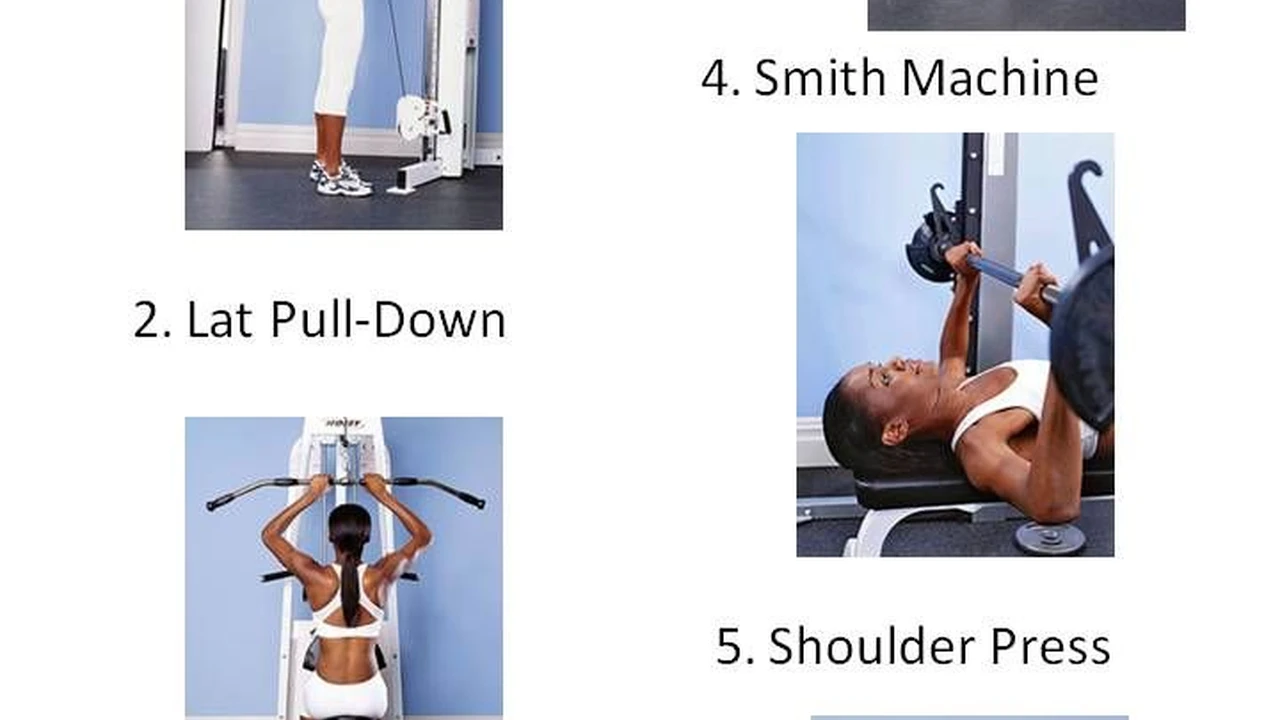Nutrition for Intermediate Gym-Goers: Optimizing Your Diet
Here's the updated article content, focusing on the 7th article within the 'Intermediate Gym Training' category, fulfilling all the specified requirements:Navigating the world of nutrition as an intermediate gym-goer can feel like a complex puzzle. You've moved beyond the basics, and now optimizing your diet is key to unlocking further gains in strength, muscle growth, and overall performance. This article dives deep into the essential nutritional strategies for intermediate lifters, covering macronutrient adjustments, supplement recommendations, and practical tips for meal planning. We'll also explore specific product recommendations, their uses, comparisons, and pricing to help you make informed choices.

Understanding Macronutrient Needs for Intermediate Strength Training
Alright, so you're not a newbie anymore. You've probably got a decent handle on the basics of protein, carbs, and fats. But now it's time to fine-tune those numbers for optimal performance and recovery. This means understanding how your body utilizes these macronutrients differently at this stage.
Protein: Still the king! Aim for around 0.8-1 gram of protein per pound of body weight. This ensures you're providing your muscles with the building blocks they need to repair and grow after those intense workouts. Think chicken breast, fish, lean beef, eggs, and plant-based sources like lentils and tofu. Don't skimp! Spread your protein intake throughout the day, aiming for at least 20-30 grams per meal.
Carbohydrates: Your fuel source. Don't be afraid of carbs! Especially around your workouts. Carbs replenish glycogen stores, providing you with energy for training and aiding in recovery. Complex carbs like brown rice, quinoa, sweet potatoes, and oats are your best bet. Time your carb intake strategically, focusing on pre- and post-workout meals. The amount will vary depending on your training intensity and goals, but a good starting point is around 1.5-2 grams per pound of body weight.
Fats: Essential for hormone production and overall health. Don't cut them out completely! Focus on healthy fats like avocados, nuts, seeds, olive oil, and fatty fish. These fats are crucial for hormone production (testosterone, anyone?), nutrient absorption, and overall well-being. Aim for around 0.3-0.5 grams per pound of body weight. Remember, quality over quantity!
Supplement Strategies for Intermediate Gym Performance and Muscle Growth
Supplements can be a helpful addition to your nutrition plan, but they're not a magic bullet. Focus on getting your nutrition right first, and then consider adding supplements to address specific needs. Here are a few worth considering:
Creatine Monohydrate: The king of supplements! Creatine is one of the most well-researched and effective supplements for increasing strength, power, and muscle mass. It works by increasing the availability of ATP, your body's primary energy source. Take 3-5 grams per day, every day, regardless of whether you're training or not. No need for a loading phase.
Whey Protein: Convenient and effective. Whey protein is a fast-digesting protein source that's ideal for post-workout recovery. It helps to quickly deliver amino acids to your muscles, promoting muscle protein synthesis. Look for a whey protein concentrate or isolate with minimal added sugars and fillers. Aim for 20-30 grams post-workout.
Beta-Alanine: Buffers muscle fatigue. Beta-alanine is an amino acid that helps to buffer lactic acid buildup in your muscles, allowing you to push harder and longer during your workouts. Take 3-6 grams per day, split into multiple doses. You might experience a harmless tingling sensation, known as paresthesia.
Caffeine: A pre-workout staple. Caffeine is a stimulant that can improve focus, energy, and performance. Take 100-300mg before your workouts, depending on your tolerance. Be mindful of the timing, as caffeine can interfere with sleep.
Specific Product Recommendations and Usage Scenarios for Gym-Goers
Let's get specific. Here are a few product recommendations based on the supplements mentioned above, along with their usage scenarios, comparisons, and pricing (approximate):
Creatine Monohydrate:
- Product: Optimum Nutrition Micronized Creatine Monohydrate
- Usage Scenario: Take 5g daily, mixed with water or your post-workout shake.
- Comparison: This creatine is micronized, meaning it dissolves easily. Other brands like MuscleTech Cell-Tech offer creatine blends with added carbs, but for pure creatine, Optimum Nutrition is a solid choice.
- Price: $20-25 for 60 servings.
Whey Protein:
- Product: Transparent Labs 100% Grass-Fed Whey Protein Isolate
- Usage Scenario: Take 25-30g post-workout, mixed with water or milk.
- Comparison: This is a high-quality whey protein isolate with no artificial sweeteners or colors. Other options like Optimum Nutrition Gold Standard 100% Whey are more affordable, but Transparent Labs prioritizes quality ingredients.
- Price: $60-70 for 30 servings.
Beta-Alanine:
- Product: NOW Foods Beta-Alanine Powder
- Usage Scenario: Take 1.5-2g, 2-3 times per day, with meals.
- Comparison: NOW Foods offers a pure beta-alanine powder at a reasonable price. Other brands might include beta-alanine in pre-workout blends, but a standalone powder allows for more precise dosing.
- Price: $20-25 for 200 servings.
Pre-Workout (Caffeine):
- Product: C4 Original Pre Workout Powder
- Usage Scenario: Take one scoop 20-30 minutes before your workout.
- Comparison: C4 is a popular pre-workout with a moderate dose of caffeine and other ingredients like beta-alanine and creatine. Other options like Pre JYM offer more comprehensive ingredient profiles, but C4 is a good starting point for beginners.
- Price: $30-35 for 30 servings.
Optimizing Meal Planning for Intermediate Level Gym Training
Meal planning is crucial for staying on track with your nutrition goals. It helps you ensure you're getting the right amount of macronutrients and calories, and it saves you time and stress during the week. Here are a few tips for effective meal planning:
Plan ahead: Dedicate some time each week to plan your meals for the upcoming days. This will help you avoid impulsive food choices and ensure you're eating nutritious meals.
Prep your meals: Prepare your meals in advance to save time during the week. Cook a large batch of protein, carbs, and vegetables, and then portion them out into containers.
Track your intake: Use a food tracking app to monitor your calorie and macronutrient intake. This will help you identify areas where you can improve your diet.
Listen to your body: Pay attention to how your body responds to different foods and adjust your diet accordingly. If you're feeling tired or sluggish, you might need to adjust your carbohydrate intake. If you're not recovering well, you might need to increase your protein intake.
Hydration and Micronutrients for Enhanced Gym Performance and Recovery
Don't forget the basics! Hydration and micronutrients are just as important as macronutrients for optimal performance and recovery. Aim to drink plenty of water throughout the day, especially around your workouts. And make sure you're getting enough vitamins and minerals from a variety of fruits, vegetables, and whole grains.
Water: Drink at least half your body weight in ounces of water per day. More if you're training intensely. Dehydration can lead to fatigue, decreased performance, and muscle cramps.
Electrolytes: Replenish electrolytes lost through sweat. Consider adding an electrolyte drink or supplement to your routine, especially during long or intense workouts.
Vitamins and Minerals: Eat a variety of fruits, vegetables, and whole grains to ensure you're getting enough vitamins and minerals. Consider taking a multivitamin to fill in any gaps in your diet.
Adjusting Your Nutrition Based on Training Intensity and Goals
Your nutritional needs will change depending on your training intensity and goals. If you're focusing on building muscle, you'll need to increase your protein and calorie intake. If you're focusing on losing fat, you'll need to create a calorie deficit. Here are a few general guidelines:
Building Muscle: Increase your protein intake to 1-1.2 grams per pound of body weight. Increase your calorie intake by 250-500 calories per day. Focus on compound exercises and progressive overload.
Losing Fat: Create a calorie deficit of 250-500 calories per day. Maintain a high protein intake to preserve muscle mass. Focus on cardio and resistance training.
Maintaining Weight: Eat at maintenance calories. Adjust your macronutrient ratios based on your training goals.
:max_bytes(150000):strip_icc()/277019-baked-pork-chops-with-cream-of-mushroom-soup-DDMFS-beauty-4x3-BG-7505-5762b731cf30447d9cbbbbbf387beafa.jpg)





